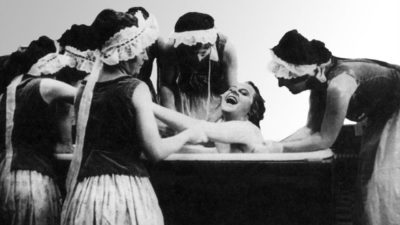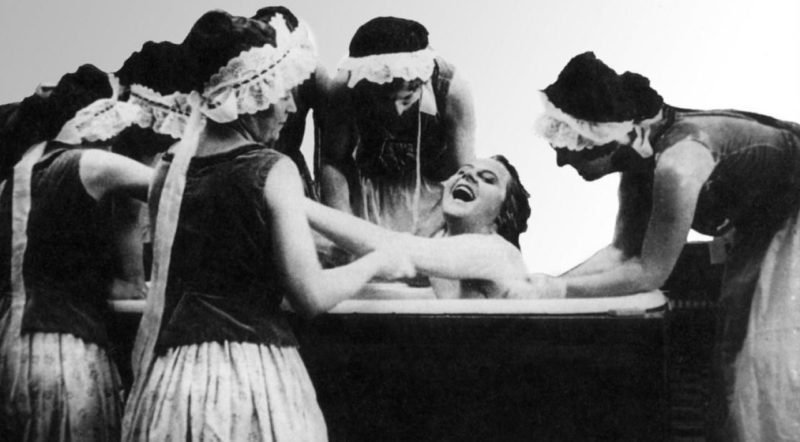REVIEW: Ernst Lubitsch remembered with Film Forum festival, screening of ‘Oyster Princess’

Ernst Lubitsch left an indelible mark on the cinematic world and was an early influence on the life and career of famed director Billy Wilder. Film Forum in New York City is celebrating the oeuvre of the German filmmaker with a weeks-long festival highlighting his many contributions to the comedy, musical and drama genres. Lubitsch’s films run through July 2.
One of the recent offerings at Film Forum was a screening of 1919’s The Oyster Princess with live piano accompaniment. The movie is a sex-minded comedy that follows a matchmaker, an unlikely couple and mistaken identity. In some ways, the plot and characters of Lubitsch’s film mimic the premise of a few William Shakespeare plays.
An oyster tycoon, known as Mr. Quaker (Victor Janson), attempts to have a young man marry his forlorn daughter, who is initially seen in a state of crazed disarray. The local matchmaker sets his eyes on Prince Nucki (Harry Liedtke), who is bankrupt and likes to sit atop a makeshift throne in his apartment.
Complicating the plot, and making for some humorous scenes, the prince’s best friend decides to pose as the prince and meet Mr. Quaker’s daughter. This case of mistaken identity leads to a whimsical ending and biting critique of privilege, fortune and folly.
The silent-era film is interspersed with intertitles that help the audience follow the plot and the characters’ thoughts. The acting, as to be expected in these early days of filmmaking, is over the top and farcical in nature. Mr. Quaker, for example, is brought to life by Janson as a grimacing, cigar-smoking entrepreneur who has no consideration for the common man or the servants who literally tuck him in at night.
There’s some decent comedy bits between the prince and his best friend (Julius Falkenstein), especially when they need to put on regal airs for the matchmaker (Max Kronert).
The film, a product of early 20th century European history, is not devoid of harsh representations and racial, gender-based and class-based stereotypes. It’s hard not to feel for Mr. Quaker’s servants and the unfair representation of Oss, Quaker’s daughter (Ossi Oswalda).
Perhaps most surprising is how sexual innuendo is sprinkled unabashedly throughout the film. There are many jokes about Oss and the prince’s eventual coupling, and more than one character spies through a peephole at the privacy of a bedroom.
The Oyster Princess is not earth-shattering entertainment, but it offers a comical critique of excess in the early years of cinema. Lubitsch’s film is educational in many ways, both for its filmic qualities (the so-called Lubitsch touch) and portrait of the unfortunate realities of privilege in society.
By John Soltes / Publisher / John@HollywoodSoapbox.com
The Oyster Princess (1919), directed by Ernst Lubitsch, stars Victor Janson, Max Kronert, Julius Falkenstein, Ossi Oswalda and Harry Liedtke. Running time: 1 hour. Rating: 




